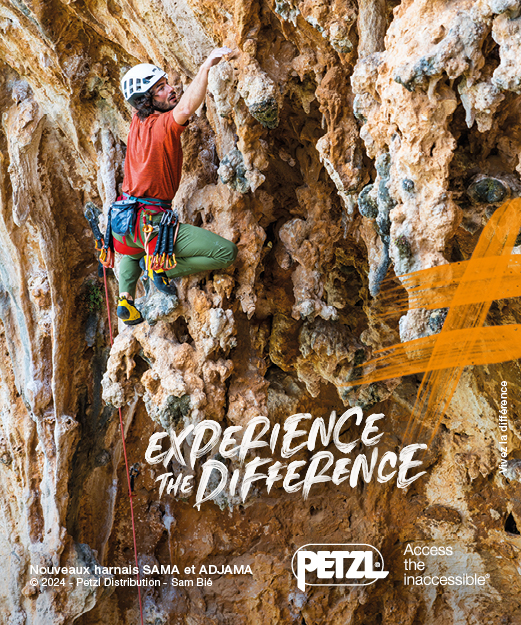Olympics and Sport climbing : analysis of the controversy in France

While Sport Climbing will enter the Olympics for the first time at Tokyo 2020, its integration seems to be not fully accepted by the members of the climbing community. Two delicate points emerge : the fact to become an olympic sport (due to climbing’s value and history) and the compromise about competition format to enter the Olympics (the combined event). In his study, A. Rogeaux focus on the controversy in France around this topic. In a pragmatic sociological approach.
On the third of August 2016, International Olympic Committee (IOC) has formalized the integration of Sport Climbing at Tokyo 2020 Olympic Games. While this temporary integration – as there is no certitude about Sport Climbing’s participation at Paris 2024 Olympics – seem to fulfill the Federation Francaise de la Montagne et de l’Escalade (FFME), one of the most active national federations on the olympic topic, this news don’t satisfy the whole community of french climbers.

Raised against mainstream sport model during the seventies, sport climbing is considered in the litterature as a highly distinctive activity. Because of its difficult access and its important codification. Free climbers have developed their own system of values and rules, against normative forms of competitions, based on sharing and originality (Aubel, 2005). Climbing mediatic system is weak and mostly internal (Aubel, 2000 ; Dumont, 2016), as its economic system (Aubel & Ohl, 2004). Further than free climbers climbing mostly outdoors, competition climbers seem also to be attached to this singularity of their sports (Guérin, 2013 ; Rogeaux, 2015).
Process of sportivization of climbing
But the process of sportivization of climbing (Aubel, 2005) requires to step back about these cultural specificities. They seem to fade over time while Sport climbing is structing itself as a mainstream sport. Nowadays Sport climbing owns the same attributes as any modern sports (Suchet, 2011). And it would be at a decisive transition period, due to its « mainstreamization » (Gagnon & al., 2016) that could be empowered by its enter to the Olympics. Then the singularity claimed by climbers would only maintain an alternative and distinguished identity in front of an unaccepted sporting reality (Soulé & Walk, 2007).

This study focus on the controversy in France, which has emerged due to the increasing of this topic the last twenty years. Also because the French Federation of Moutain and Climbing is one of the most active national federations to promote the olympic climbing bid. In a pragmatic sociological approach (Barthe & al., 2013), the purpose is to study the establishing dimension of this controversy (Lemieux, 2007), to understand how social is reorganised by it.
Considering the olympic climbing trial as an innovation, A. Rogeaux also uses the Actor-Network Theory (Latour, 2006) to have a better understanding of the the successful process of this innovation, focusing on the context, the actors and their networks. He centred around the FFME as this federation appears as a key promotor of the integration of Sport climbing at the Olympics.
Sport climbing at the Olympics as an innovation
A. Rogeaux proposes to consider the integration of Sport climbing at the Olympics as an innovation. I.e as something new (it may be a technique, an event, an organization, and so on) that become accepted and used by the people to whom this novelty is designed to. Comparing to current Sport climbing competitions, Olympic Climbing trial represents a novelty on various sides. The size of the event (Muller, 2015), the mediatic visibility (Aubel, 2000 ; Dumont, 2016), the public (Wheaton & Thorpe, 2016), the values (Aubel, 2005 ; Guérin, 2013 ; Rogeaux, 2015), and the competition format (with the creation of the combined event). The issue is to study social reception of this novelty throught the controversy about this topic.

The analysis consists in drawing an overview of the controversy in France. A. Rogeaux analysed a corpus of writing and internet sources, from specialised and non-specialised medias, to have a wide understanding of the structure of the controversy. He also leaded interviews, with some of the key actors that corpus analysis has enabled to identify. He has lead a joint analysis (Chateauraynaud, 2007) of their speech to confront it to their concrete actions.
The combined format strongly criticised
First, some criticisms focus on the Olympic movement. Many climbers seem to fear the lost of climbing essence, unwished changes in the rules, standardization and merchandization of the activity – such as some climbers during the eighties facing the emergence of climbing competition – with the integration at the Olympics. Second, the combined competition format chosen for the Olympics is strongly criticised, as it consists in a mix of the three disciplines (lead, boulder and speed), to the point that some athletes think about boycotting the trial. The obligation to compete in Speed climbing seem to discourage many athletes to train. And many people to support Olympic climbing.
What’s more, drawing an overview the controversy about Olympic climbing in France enlights that there is no network clearly structured against this innovation, while there is a strong network supporting it, composed of athletes, trainers, federations and mainstream medias. This results help to understand how the innovation of olympic climbing has been developped and accepted in France, and illustrates the key role of the French Federation in the international process of olympization of Sport climbing.
Read the complete study and see all the conferences of the 4th IRCRA congress on our Youtube channel









No Responses
[…] of important changes. Which, if ratified, will significantly change the current Olympic format. The Tokyo 2020 format comprises a mix of Lead, Boulder and […]